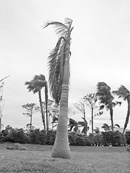All Nonfiction
- Bullying
- Books
- Academic
- Author Interviews
- Celebrity interviews
- College Articles
- College Essays
- Educator of the Year
- Heroes
- Interviews
- Memoir
- Personal Experience
- Sports
- Travel & Culture
All Opinions
- Bullying
- Current Events / Politics
- Discrimination
- Drugs / Alcohol / Smoking
- Entertainment / Celebrities
- Environment
- Love / Relationships
- Movies / Music / TV
- Pop Culture / Trends
- School / College
- Social Issues / Civics
- Spirituality / Religion
- Sports / Hobbies
All Hot Topics
- Bullying
- Community Service
- Environment
- Health
- Letters to the Editor
- Pride & Prejudice
- What Matters
- Back
Summer Guide
- Program Links
- Program Reviews
- Back
College Guide
- College Links
- College Reviews
- College Essays
- College Articles
- Back
The Hidden Human Society in Animal Farm
Animal Farm, written by George Orwell, is an allegorical novel first published in 1945, which portrays a story of an animal society. After a
successful revolution against the owner of the farm in order to procure an equal and free animal society, the intelligent pigs, the leaders of the animals, gradually change the rules and oppress the animals to work. Throughout the book, Orwell delivers a theme about the transient and ostensible nature
of freedom and equality. Written during the time when Communism dominated the Soviet Union, the book uses the story of the animals to allude to the country’s ongoing political affairs under Stalinist rule. Each of the characters in the book possesses distinctive character traits, and thus each animal symbolizes a certain group of people in the Soviet Union.
Napoleon is a pig that follows the prophecy of Old Major and starts the revolution. However, he seizes increasing power and privileges as he becomes the top leader of the Animal Farm, which alludes to Stalin, then
leader of the Soviet Union. Throughout the course of the entire book, Napoleon becomes more like a man; he changes from having the same rights and responsibilities as all the other animals to oppressing them to
work even more than when forced by humans. At the very end of the book as the animals witness the quarrel between the pigs and the men, they think, “already it was impossible to say which was which.” (141) Unable to
distinguish one from another, the animals, which symbolize the people, lose faith and confidence in their leader since Napoleon violates all the commandments that were established on the very first day and becomes a dictator even worse than man. The development of this character manifests
Orwell’s disapproval of how the leader of the Soviet Union governed his own people at that time.
Boxer is a horse who puts forth extra work to prompt the prosperity of Animal Farm. He is eventually executed by the leaders due to his age and inability to possess as much strength, which reflects the deceived lower class in Soviet society. Even though at some moments Boxer doubts what the authority claims, eventually he chooses to believe in the pigs and works extremely hard to make the Animal Farm a better place. As the most hard-
working member of the community, he has the motto of “I will work harder,” (56) and spends extra hours than the other animals on the construction of the windmill. His hard work earns the respect of all the animals including Benjamin, a hard-nosed donkey, but as he becomes older and no longer possesses the power, the pigs sell him to a butcher in exchange for a wooden crate. Orwell intends to use the image of Boxer to reflect the misfortune of those who were deceived by the government but still worked for them without complaint.
Squealer, the second most powerful figure on the farm, who carries out all the new rules and decisions and brainwashes the animals to believe in everything the pigs say, symbolizes a loyal supporter of the Soviet leader.
Due to his strong eloquence, whenever the animals start to doubt the plausibility of the pigs’ words, he persuades them and thus prevents them from rebelling against the government. He secretly changes all the
commandments that everybody agrees on right after the rebellion into something more advantageous for the pigs, as he “was sprawling beside it, and near at hand there lay a lantern, a paintbrush, and an overturned pot of white paint.”
(103) However, because of their strong faith in the government, the
animals do not think about it as an action of deceit. Orwell uses Squealer to
represent a loyal supporter at Stalin’s side, who persuades the people to
have faith in the government.
Using various animals as symbols of different groups within the Soviet Union, Orwell depicts a vivid story of his predictions on the future
of Soviet society. Napoleon, Boxer, and Squealer are three examples among
all the characters that represent the formation of the society, which Orwell believed would fail. I strongly recommend this book as the characters achieve Orwell’s intended representation. Even though the fable looks simple and easy to understand, the actual meaning behind it is quite thought-inspiring.

Similar Articles
JOIN THE DISCUSSION
This article has 0 comments.
